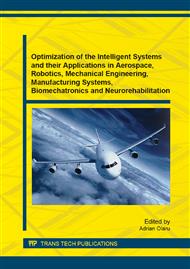p.325
p.331
p.339
p.345
p.351
p.357
p.363
p.369
p.375
Multi-Criteria Kinematic Optimization of a Front Multi-Link Suspension Mechanism Using DOE Screening and Regression Model
Abstract:
This paper approaches the multi-criteria kinematic optimization of a front multi-link suspension mechanism. The optimization purpose is to minimize the variations of the wheel track, wheelbase, castor angle, and induced deflection angle, the monitored values being the root mean squares during simulation. The locations of the joints by which the guiding links/arms are connected to the adjacent parts are used as independent variables in the optimization process. The investigation strategy is based on a design of experiments technique - DOE Screening, obtaining the appropriate regression model. The goodness-of-fit has been verified by computing the variance in the predicted results versus the real data, the probability that the fitted model has no useful terms, and the significance of the regression. The study is performed by using the multi-body system environment ADAMS of MSC Software.
Info:
Periodical:
Pages:
351-356
DOI:
Citation:
Online since:
July 2013
Authors:
Keywords:
Price:
Сopyright:
© 2013 Trans Tech Publications Ltd. All Rights Reserved
Share:
Citation:


